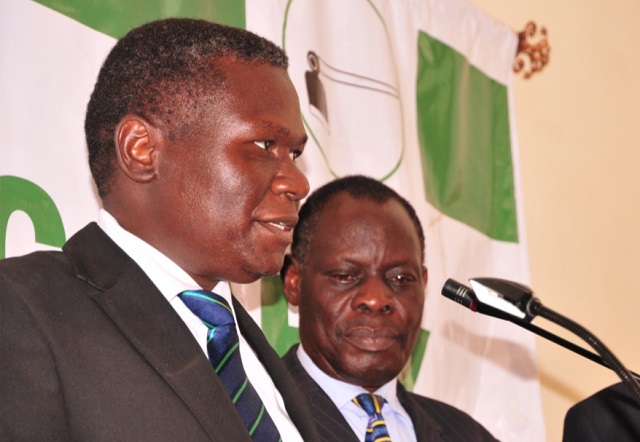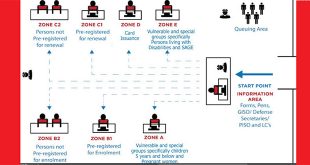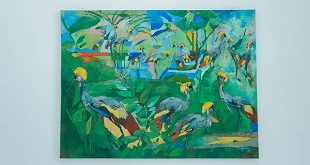
Why Mao, Besigye, Bobi Wine cannot work together
Kampala, Uganda | IAN KATUSIIME | Of all declared candidates for the 2021 presidential election, Norbert Mao appears to be crafting the most interesting strategy so far. The President General of the Democratic Party (DP) has for over two years been engaged in reunification work within his party. In the latest move, Mao on April 04 in Kampala announced the formation of a new political structure called the DP Bloc.
The DP Bloc has four strands; the mainstream DP of Mao, the Peoples Development Party (PDP) of perennial presidential candidate Abed Bwanika, the Social Democratic party (SDP) of another DP-break-away maverick, Michael Mabikke , and the still unregistered Truth for Justice Party of London-based former presidential candidate Samuel Lubega.
Although this DP Bloc is being sold as a united front, a closer looks exposes it as an effort by the four main players to manage a very delicate power struggle within the DP.
Mao is the driver, has the most political clout, and has already announced that he will run for president in 2021. But it is clear that the other three; Bwanika, Mabikke, and Lubega are determined to ensure that he treats them as equals. And he might –as long as they do not threaten his plans for the presidential election. So suspicion is rife because Bwanika, Mabikke, and Lubega are all ambitious men.
It would not be surprising if Bwanika, Mabikke, and Lubega insist on the DP Bloc fielding one joint candidate elected from among the “four principals”. If that happens, Mao will lose. At the heart of all successful political alliances is the personal chemistry between the leaders involved and Mao is an outsider ethnically in the DP Bloc. But if Bwanika, Mabikke, and Lubega try to push him out, the DP Bloc will break and Mao will run as a DP candidate. In that case, Bwanika too could run as a PDP candidate. He is weak and does not stand a decent chance but that does not matter to him. His strategy is built around the idea that he also runs.
In the last presidential election, Bwanika got 0.9% of the vote. It was too low but a 40% improvement on the 0.65% that he managed in 2011. He had won his highest ever tally in a general election in 2006 when he scooped 0.95% of the vote. In actual numbers, only 65,874 people voted for him out of 6.9 million who voted.
Mao on the other hand got 1.86% of the vote in the 2011 presidential race. It was low and inconsequential but it placed him third, behind the big two of Uganda’s political arena; President Yoweri Museveni of NRM and Kizza Besigye; the freewheeling Forum for Democratic Change (FDC) stalwart. Samuel Lubega who ran in the same election got 0.41% of the vote.
So, when the four unveiled their DP coalition, it raised many questions. What is the plan behind it? Secondly, do they expect other players to take four political minnows more seriously, simply because they have formed a Bloc?
Ibrahim Ssemuju Nganda; the spokesperson of Uganda’s biggest opposition party; FDC has already dismissed them.
“We are battling to cut down a strong mvule tree and all they bring on the table are razor blades,” he told journalists.
But Medard Lubega Sseggona, MP for Busiro County East under DP, says their strategy is different.
“It is about strategy and the candidates.” He adds, “We have taken our lessons. We are not going to fold our hands. If we do not unite, how shall we get rid of the dictatorship?”
On whether the coalition can get the voter numbers, Ssegona is cryptic: “Bashir had just won an election. Even the Museveni who gets millions today struggled to get 100,000 votes in 1980.”
Lubega too was unfazed by Ssemuju’s scoffing. According to him, Ssemuju and his ilk are living in the past.
“The political landscape has shifted,” he said on a radio talk show. The implication is that FDC is no longer as powerful as it has been. Apparently, FDC’s militaristic former president has been replaced by political debutante Robert Sentamu Kyagulanyi aka Bobi Wine as the leader of the opposition radical fringe. And, in an interview with The Independent, Bwanika was quick to claim the Kyadondo East MP.
“Bobi Wine is part of us. We will help those who are with People Power with structures which will help them to stand in various positions,” he said.
The significant portions reveal parts of the DP Bloc strategy. It is not about the presidency only, apparently. They are also pushing a strategy whereby opposition parties agree not to field candidates against each other in the parliamentary and lower elections. The decision on which party will field a candidate will depend on strength of the party in the constituency. But this DP Bloc decision has already been criticised because those pushing it are seen to be weak politically and yet they claim to be stronger than candidates from the FDC in Buganda, the heart of opposition. But that is also just a tiny part of the strategy. According to some analysts, the DP bloc of Mao, Bwanika, Mabikke, and Lubega is designed to court western donors, their money and support.
Targeting donor money
Donors routinely fund political parties during elections under the Deepening Democracy Programme (DDP), a joint purse funded by some European countries; the British, Swedes, Danes, and Dutch. Under the Political Parties and Organisations Act, 2005, donors can only give Shs400 million a year max to a political party. That is not a lot of money. But other money flows in indirectly through equipment and trainings. It also keeps opposition leaders politically relevant.
Other players; like the United States Agency for International Development (USAID) and its embassy also bring in money from the National Democratic Institute (NDI) and the International Republican Institute (IRI). This funded Olara Otunnu, the Uganda Peoples Congress (UPC) presidential candidate in in 2011.
 The Independent Uganda: You get the Truth we Pay the Price
The Independent Uganda: You get the Truth we Pay the Price



